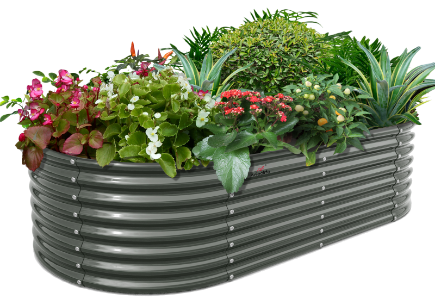The Sustainable Garden: How to Create an Eco-Friendly Landscape Without Breaking the Bank
Corps
In today's world, the concept of a garden economy is gaining traction as more individuals seek to create sustainable landscapes. But what does it mean to have a garden economy in mind? It involves understanding the balance between environmental responsibility and economic viability. This article will guide you through the essential steps to create an eco-friendly garden that respects both nature and your wallet.

Understanding the Garden Economy
The garden economy encompasses various practices that promote sustainability while ensuring cost-effectiveness. By focusing on native plants, composting, and water conservation, you can cultivate a thriving garden that benefits both the environment and your finances. Have you ever considered how your gardening choices impact the ecosystem? By making informed decisions, you can contribute positively to your local environment.
Choosing Native Plants
One of the most effective ways to enhance your garden economy is by selecting native plants. These plants are adapted to your local climate and soil conditions, requiring less water and maintenance. Here are some benefits of using native plants:
- Lower water usage
- Reduced need for fertilizers and pesticides
- Support for local wildlife, including pollinators
When you choose native plants, you not only save money but also create a habitat that fosters biodiversity. This is a crucial aspect of a sustainable garden.
Composting: A Cost-Effective Solution
Composting is another essential practice in the garden economy. By recycling kitchen scraps and yard waste, you can create nutrient-rich soil amendments that enhance plant growth. If you are wondering how to start composting, consider the following steps:
- Choose a compost bin or pile location.
- Collect organic materials such as fruit peels, vegetable scraps, and grass clippings.
- Maintain a balance of green (nitrogen-rich) and brown (carbon-rich) materials.
- Turn the compost regularly to aerate it.
Not only does composting reduce waste, but it also minimizes the need for chemical fertilizers, making it a win-win for your garden and your budget.
Water Conservation Techniques
Water is a precious resource, and conserving it is vital for a sustainable garden. Implementing water-saving techniques can significantly reduce your water bill. Here are some strategies to consider:
- Install rain barrels to collect rainwater for irrigation.
- Use drip irrigation systems to deliver water directly to plant roots.
- Mulch around plants to retain moisture and suppress weeds.
By adopting these practices, you can maintain a lush garden while being mindful of water usage.
Creating an Eco-Friendly Landscape
To truly embrace the garden economy, consider investing in sustainable garden products. For instance, using galvanized garden beds can enhance your gardening experience while being environmentally friendly. You can find a variety of options at .
In conclusion, creating a sustainable garden is not only beneficial for the environment but also economically viable. By keeping the garden economy in mind, you can cultivate a beautiful landscape that thrives on ecological principles without straining your finances. Start your journey towards an eco-friendly garden today!










commentaires